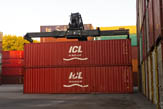Understanding Trade Terms for Maritime Shipping
When conducting international trade, especially in maritime shipping, it's crucial to understand the various trade terms used to describe the conditions under which goods are shipped. These terms help clarify responsibilities, costs, and payment conditions between buyers and sellers. Below are some commonly used trade terms in maritime shipping:
1. Cost and Freight (CFR): This term means that the cost of freight and insurance is borne by the buyer. The buyer pays the shipping company to have the goods shipped to their destination.
2. Collect Insurance Freight (CIF): Under this term, the seller is responsible for insuring the goods against loss or damage. The buyer pays only the shipping cost.
3. Free On Board (FOB): This means the goods are loaded onto the ship at the seller's place of business, and the seller retains ownership until the goods are shipped.
4. FOB Ex Works: Similar to FOB, but the seller transfers ownership of the goods to the buyer at a works or factory location, and the seller is responsible for insurance and freight.
5. CFR Ex Works: The buyer is responsible for all costs, including shipping and insurance, and takes ownership of the goods at the works or factory location.
6. Insurance: The seller provides insurance to cover potential losses, and the buyer pays for this insurance separately.
Understanding these trade terms is essential to avoid disputes and ensure smooth international trade. Always clarify the terms with your supplier or buyer before placing an order. Properly understanding and applying these trade terms can help protect your business interests and streamline the trading process.
